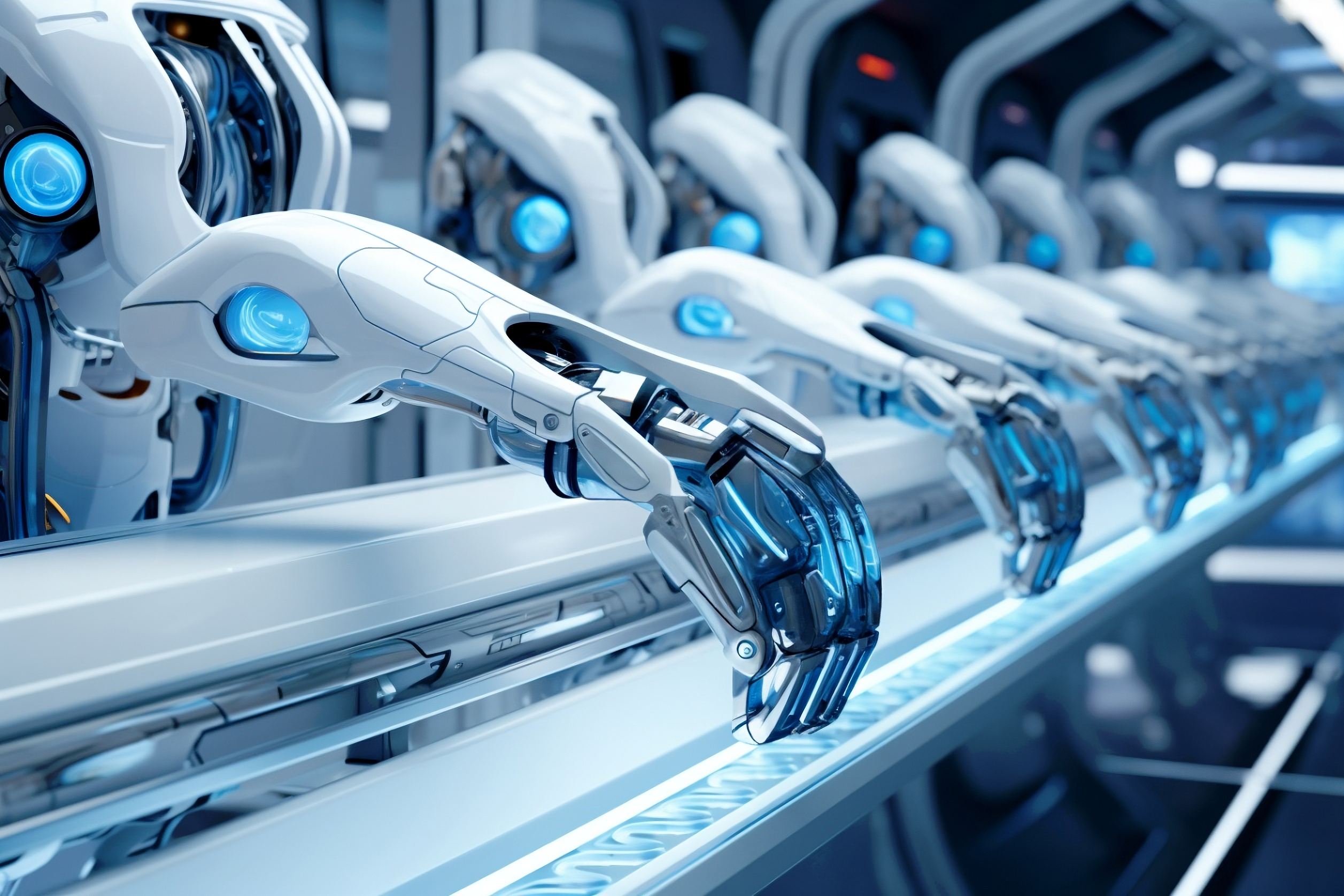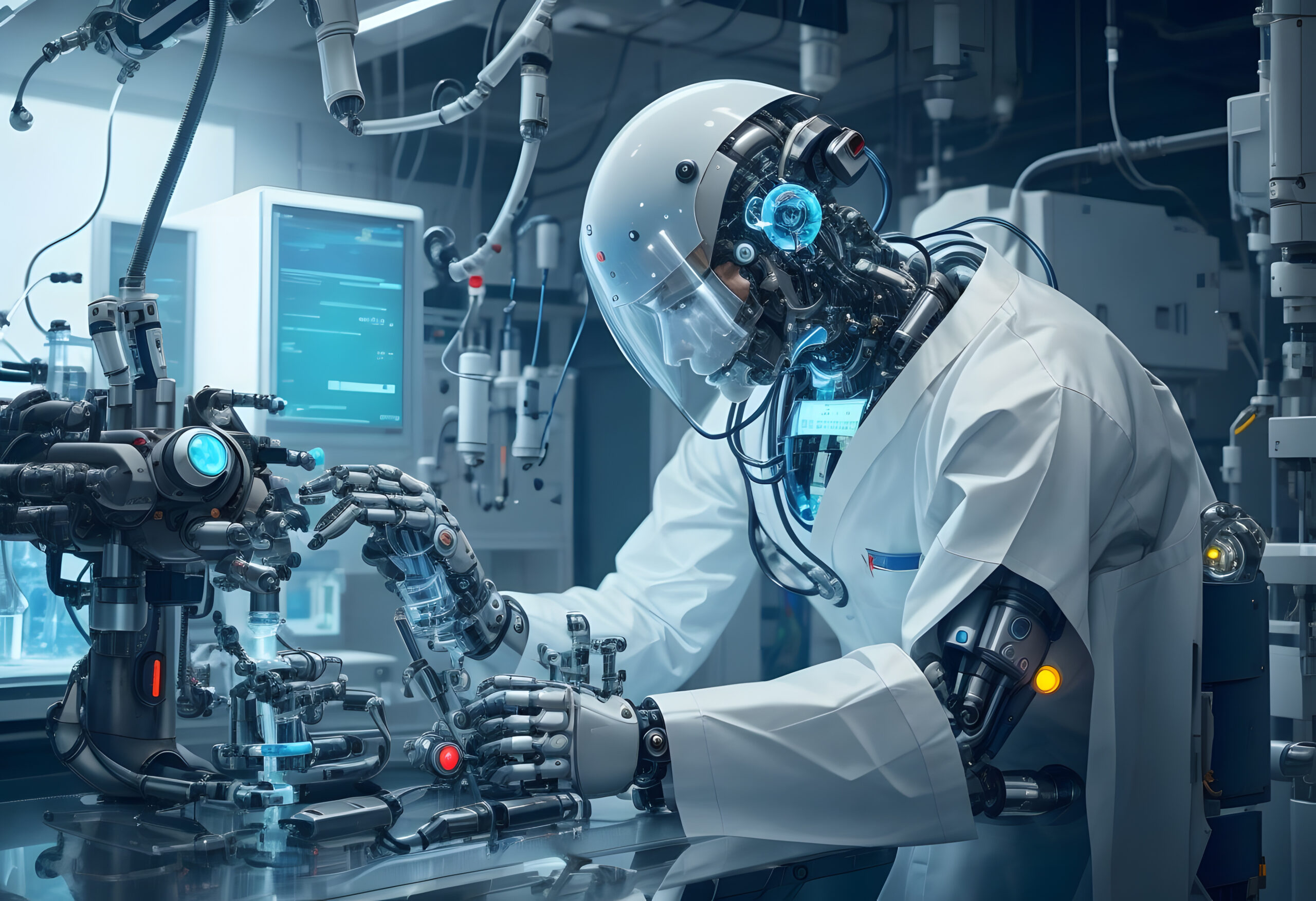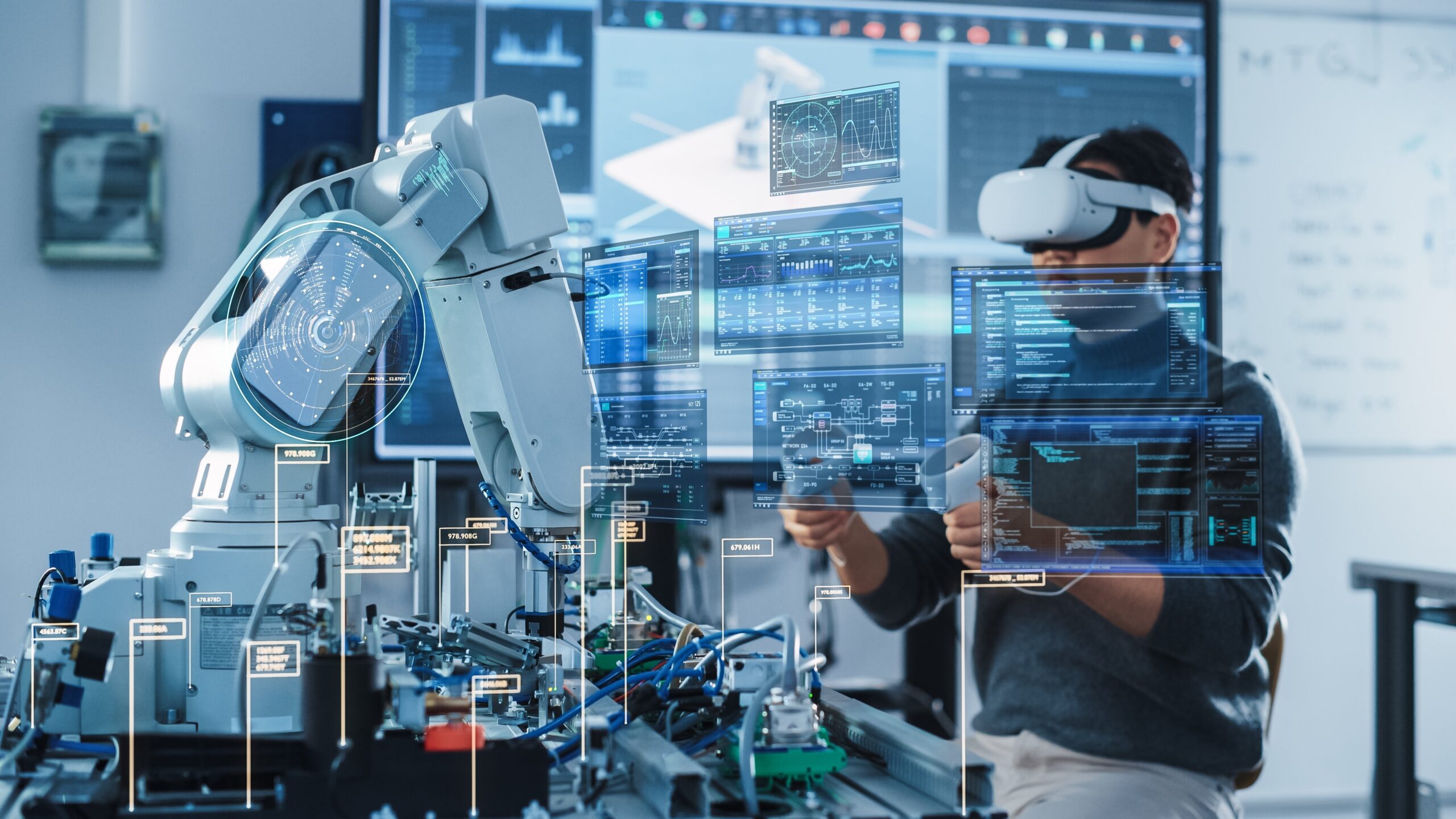
Robotics 4.0 in focus
Robotics trends 2030: Flexibility in automation
According to the latest report from the International Federation of Robotics, computer vision is one of the most important drivers of innovation in modern robotics after artificial intelligence. The average annual growth rate of this technology is 18%. Mordor analysts forecast a market volume of 40 billion US dollars for the year 2029. Other robotics trends such as mobile manipulators and the digital twin cannot be viewed in isolation from modern sensor technology and machine vision. Together, these technologies contribute to intelligent, autonomous industrial robots and can address challenges such as the shortage of skilled workers and cost pressure in a solution-oriented manner.Fast progress in digitalization and investments can currently be observed in robot-assisted handling, as e.g. in order picking systems in logistics.
Manual vs. automated parts handling in automotive production

Machine learning of computer vision robot systems
The establishment of vision systems in the manufacturing industry
While the layout planning of production cells and the offline programming and validation of robots is still carried out as standard today without the special integration of image processing systems, we assume that this will be an integral part of the planning phase in the near future. Several technological trends are helping to ensure that this combination for safeguarding computer vision robots in engineering will quickly become established and that nothing will stand in the way of these systems becoming established on the store floor. In detail, these are
Collaborative Incubation: Membership model for industrial innovators
Discover more
Innovation table: Smart CAE robotics
With the Innovation Table "Automation & Robotics", inpro has set a central topic focus for partnership innovation projects in the coming years. CAE solutions for the planning of intelligent robotic systems are an elementary component of the digital factory of the future and at the same time a prerequisite for more sustainable automotive manufacturing.
Innovation partnership: Accenture and inpro
Accenture and inpro are combining their digitalization and innovation expertise to support industrial companies, particularly in the automotive sector. By using technologies such as AI, data analysis and evaluation or automatic image recognition, quality problems in the manufacturing industry, for example, are to be identified more quickly and resolved sustainably.




 inpro
inpro